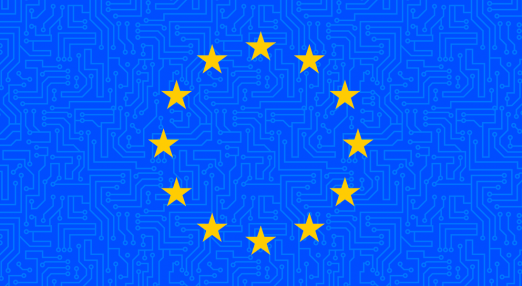DSA
Filter by...
-

European Parliament’s plans of a Digital Services Act threaten internet freedoms
The EU's Digital Services Act is a chance to preserve what works and to fix what is broken. EFF and other civil society groups have advocated for new rules that protect fundamental rights online, while formulating a bold vision to address today's most pressing challenges. However, while the initial proposal by the EU Commission got several things right, the EU Parliament is toying with the idea of introducing a new filternet, made in Europe. Some politicians believe that any active platform should potentially be held liable for the communications of its users and they trust that algorithmic filters can do the trick to swiftly remove illegal content
Read more
-

Disinformation and propaganda: It’s all political!
The disinformation and propaganda campaigns in the European Union (EU) are inexplicably tied to the political parties that misuse the tools of mass media communications to spread fear and deceit (Euractiv, 2021). The media exemption currently debated within the scope of the Digital Services Act (DSA) that would prevent digital intermediaries from interfering with content posted by media outlets is an early Christmas present to the disinformation agents, as it would enable them to continue with their propaganda production, fueled by algorithmic distribution.
Read more
-

Position Paper: The EDRi guide to 2,297 amendment proposals for the DSA
Various committees in the European Parliament have tabled such a large number of amendments for the Digital Services Act (DSA) that today, EDRi publishes a guide to support Members of the European Parliament in navigating those that would help create a successful, open, and rights-respecting European digital sphere.
Read more
-

Warning: the EU’s Digital Services Act could repeat TERREG’s mistakes
On 30 September, the Committee of Legal Affairs (JURI) in the European Parliament approved its draft report on a Single Market For Digital Services (Digital Services Act). We had expressed our concerns about negative fundamental rights implications of some proposed measures in the report to the Members of the European Parliament. However, it did not stop the JURI Committee from giving them their green light.
Read more
-

DSA should tackle the root cause of polarisation, not just its symptoms
Yesterday, 30 September 2021, the European Parliament’s Legal Affairs Committee (JURI) approved its Opinion on the proposed Digital Services Act (DSA). European Digital Rights (EDRi) and its 45 member organisations had previously called on JURI members to reject the compromise proposed by the Rapporteur for Opinion.
Read more
-

Big Tech platforms are hurting us. 50 organisations urge the EU to #FixAlgorithms
The list of negative consequences of how dominant online platforms shape our experience online is neither short nor trivial. From exploiting users’ vulnerabilities, triggering psychological trauma, depriving people of job opportunities to pushing disturbing content to others, these are just some examples. While members of the European Parliament debate their position on the Digital Services Act (DSA), EDRi’s member Panoptykon Foundation (Poland), together with 49 civil society organisations from all over Europe, including EDRi, Amnesty International, Article 19, European Partnership for Democracy and Electronic Frontier Foundation, urge them to ensure protection from the harms caused by platforms’ algorithms.
Read more
-

Move fast and break Big Tech’s power
The surveillance-based business model of the dominant technology companies is based on extracting as much personal information and profiling as possible to target individuals, on- and offline. Over time, Big Tech corporations build a frighteningly detailed picture about billions of individuals—and that knowledge directly translates into (market) power.
Read more
-

Can the EU Digital Services Act contest the power of Big Tech’s algorithms?
A progressive report on the Digital Services Act (DSA) adopted by the Committee on Civil Liberties, Justice and Home Affairs (LIBE) in the European Parliament in July is the first major improvement of the draft law presented by the European Commission in December. MEPs expressed support for default protections from tracking and profiling for the purposes of advertising and recommending or ranking content. Now the ball is in the court of the leading committee on internal market and consumer protection (IMCO), which received 1313 pages of amendments to be voted in November. EDRi's member Panoptykon Foundation explores if the Parliament would succeed in adopting a position that will contest the power of dominant online platforms which shape the digital public sphere in line with their commercial interests, at the expense of individuals and societies.
Read more
-

Who will not be blocked by Facebook? SIN wins the first court battle
The District Court in Warsaw (Appellate Division) upheld its interim measures ruling from 2019 in which it temporarily prohibited Facebook from removing fan pages, run by the Polish NGO “SIN”, on Facebook and Instagram, as well as from blocking individual posts. This means that – until the case is decided – SIN’s activists may carry out their drugs-related education on the platform without concerns that they will suddenly lose the possibility to communicate with their audience. The decision is now final. EDRi's member Panoptykon Foundation sheds some light on the case and what it means on the broader scale.
Read more
-

The Data Governance Act – between undermining the GDPR and building a Data Commons
Compared to the DSA and the DMA, the DGA has received relatively little attention, both from the digital rights community and, seemingly, from industry stakeholders. So far, the discussion in the EP – where the Internal Market ( IMCO), legal affafirs (JURI) and civil liberties (LIBE) committees have issued opinions – has revealed relatively few clear faultlines.
Read more
-

All hands on deck: What the European Parliament should do about the DSA
After the European Commission’s proposal for a Digital Services Act (DSA) in December 2020, no less than seven committees in the European Parliament are now drafting their reports and opinions on the DSA. In parallel, member states are deliberating about the Council’s position, too. Yet, while the Commission has carefully tried to modernise the ageing rules of the E-Commerce Directive and make them fit for the platform economy, several of the committees’ draft reports propose—deliberately or not—to turn the DSA into a dystopian fundamental rights nightmare.
Read more
-

Joint Civil Society Statement Urges IMCO Committee to Uphold Fundamental Rights in the DSA
On 1 July 2021, along with 6 leading civil society organisations EDRi signed a joint statement urging Members of the Internal Market and Consumer Protection Committee (IMCO) in the European Parliament to uphold fundamental rights and democratic principles in the final Digital Services Act (DSA) regulation.
Read more
